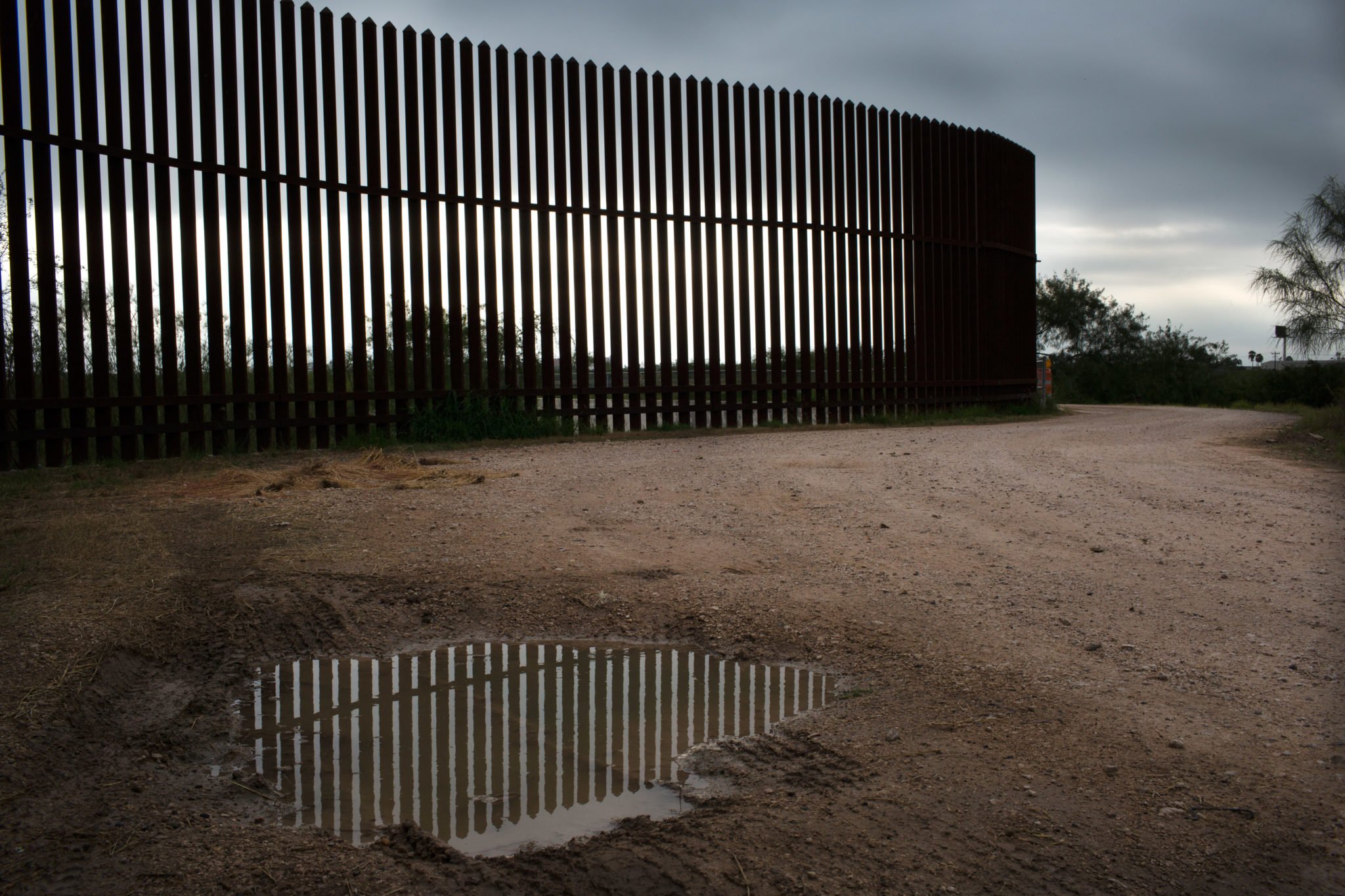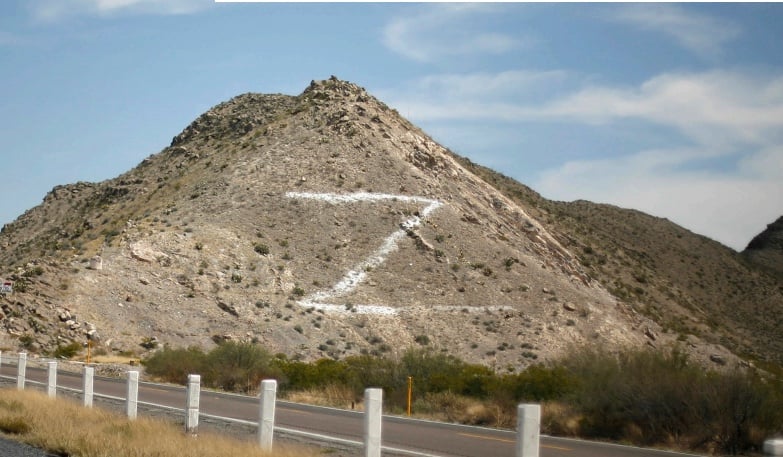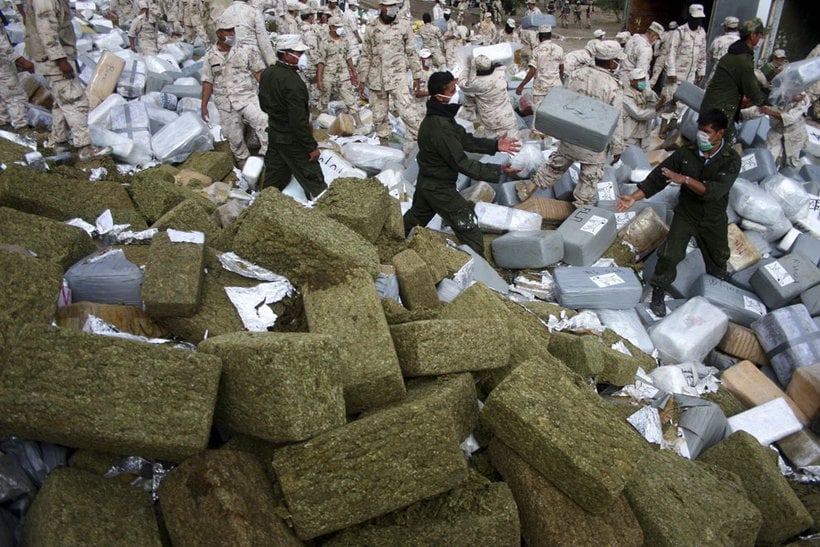
Will Chapo’s Capture Change Anything?

Above: Joaquin "Chapo" Guzman escorted to a military helicopter
Both the U.S. and Mexican governments are celebrating Saturday’s arrest of Mexico’s most notorious drug kingpin, Joaquin “Chapo” Guzman, but longtime experts on Mexico believe his arrest will only spur more violence in a conflict that has already caused more than 100,000 deaths and at least 26,000 disappearances since 2006.
El Paso immigration lawyer Carlos Spector has, since 2006, represented dozens of families in asylum court as they flee warring political and drug factions. Spector currently represents 100 families in political asylum cases, and has begun receiving families from the southern states of Guerrero and Michoacan, where rampant extortion and government officials’ complicity with cartels have prompted communities to form their own self-defense forces. “Chapo’s capture is a great political victory for both countries, and they’re going to take it for a ride as long as they can until reality sets in and there’s the next wave of assassinations throughout the country,” Spector says.
Spector has family in both Mexico and the United States. His grandfather was mayor of the small Mexican town of Guadalupe just across the border from Tornillo, Texas. In 2009, the Mexican military moved into Guadalupe, spurring a scorched-earth campaign between Guzman’s Sinaloa Cartel and the Juarez Cartel, which had run the territory for decades. The small town’s murder rate skyrocketed to one of the highest in the world, and many fled to the United States to ask for asylum. Several police officers were killed, and the military built a makeshift barracks in the small town to patrol Guadalupe and the surrounding Juarez Valley.
As I wrote in a 2012 Texas Observer story, “The Deadliest Place in Mexico,” numerous survivors from the town told me that the military was assisting Guzman’s Sinaloa Cartel in eradicating Juarez Cartel members. Spector says that since at least 2010, the Sinaloa Cartel has been in control of Guadalupe and the surrounding valley, which is under the control of the Mexican Army. The region still doesn’t have any local police forces. “A very interesting question is: How does the capture of Chapo change the dynamic of the relationship with Sinaloa and the military that has kept the cartel in power in the Juarez Valley?” says Spector.
The U.S. media is presenting Guzman’s capture and the Sinaloa Cartel in too simplistic of terms, he says. “They are viewing it through American eyes as another economic and corporate structure, but his power has a lot to do with deep family ties and personal loyalties which in large part is what Mexican politics are all about,” Spector says. “Now other cartels and dissident groups within Sinaloa are going to form new alliances and it’s going to create a lot of violence and readjustment.”
What doesn’t change is the drug market. “The production and distribution is still in place,” Spector says. “But I think we’re going to see a lot more violence, maybe not immediately but in the foreseeable future.”
David Ramirez, a former federal law enforcement officer, spent decades investigating and arresting drug cartel members before retiring in 2009. Ramirez says the arrest of another kingpin is always a political victory but ultimately doesn’t make a dent in the drug market.
As a rookie U.S. Border Patrol agent, Ramirez arrested Amado Carrillo Fuentes in the 1980s—later released by federal prosecutors—before he became the infamous “Lord of the Skies” and kingpin of the Juarez Cartel. Later, Ramirez became part of an elite group of covert agents in the Immigration and Naturalization Services, investigating organized crime. The INS was dissolved and repurposed into U.S. Customs and Border Protection under the massive new U.S. Department of Homeland Security. Ramirez retired in 2009.
“It frustrates me that we’ve been fighting the drug war for more than 40 years and arrested countless kingpins but we’re still in the same situation,” he says. “They talk as if it’s going to slow down the drug flow, but it does nothing. We need to stop the demand on our side of the border.”
The Sinaloa Cartel basically organized the drug smuggling structure in the western hemisphere back in the ‘60s and ‘70s, he says. “The structure is already there—you don’t need Chapo Guzman. They’ll just put somebody else in his place.”
To support journalism like this, donate to the Texas Observer.

